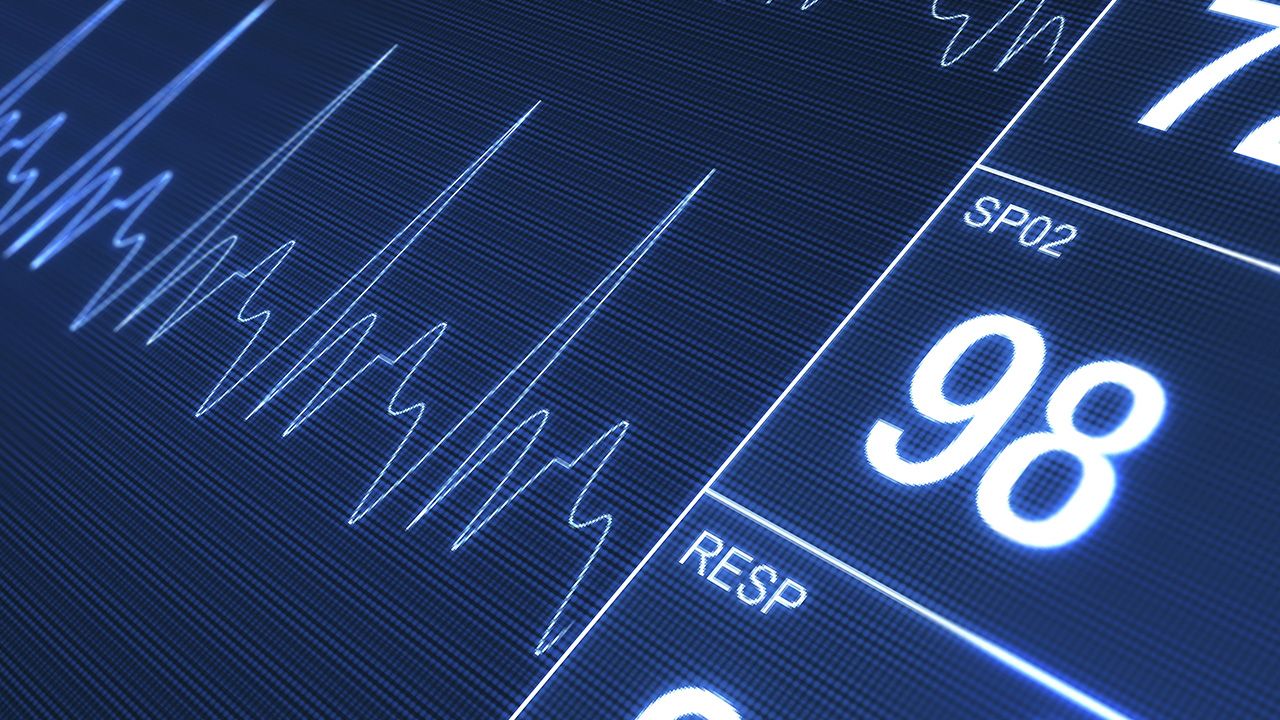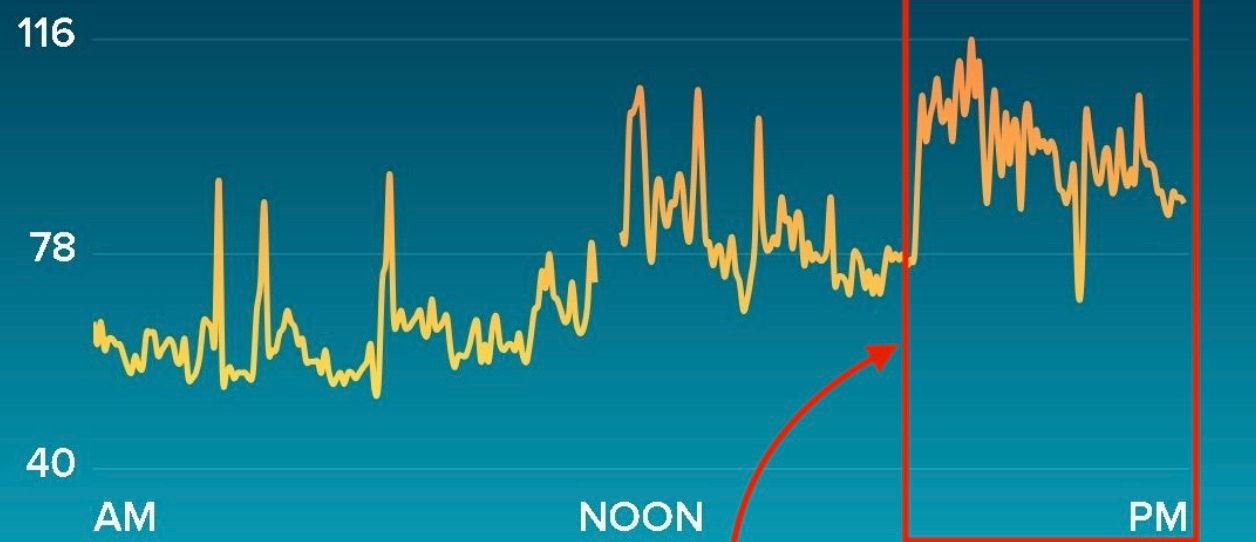Occasional Rapid Heart Rate
Posted : admin On 7/10/2022What is an arrhythmia?
An arrhythmia (also called dysrhythmia) is an irregular or abnormal heartbeat.
What is my pulse?
An arrhythmia is an uneven heart rhythm. Learn more about the symptoms, causes, types, risk factors, diagnosis, treatment, complications, and prevention of arrhythmia. Heart rate is controlled by electrical impulses that travel through contractile heart muscle and when there is a defect in the heart tissue, contractions can greatly increase. According to the Mayo Clinic, a healthy adult heart beats between 60 and 100 times per minute when at rest.
Your pulse indicates your heart rate, or the number of times your heart beats in one minute. Pulse rates vary from person to person. Your pulse is slower when you are at rest and increases when you exercise, since more oxygen- rich blood is needed by the body during exercise.
How do I take my pulse?
You can tell how fast your heart is beating by feeling your pulse. You can feel your pulse on your wrist or neck. Place the tips of your index and middle fingers on the inner wrist of your other arm, just below the base of your thumb. Or, place the tips of your index and middle fingers on your lower neck, on either side of your windpipe. Press lightly with your fingers until you feel the blood pulsing beneath your fingers. You may need to move your fingers around slightly up or down until you feel the pulsing.
You can count the number of beats in 10 seconds and multiply by 6 to determine your heart rate in beats per minute. A normal heart rate, at rest, is 50 to 100 beats per minute.
Your Heart Rate: Pulse in 10 seconds x 6 =_
Heart Rhythms on ECG
The heart’s electrical system triggers the heartbeat. Each beat of the heart is represented on the electrocardiogram (EKG or ECG) by a wave arm.
The normal heart rhythm (normal sinus rhythm) shows the electrical activity in the heart is following the normal pathway. The rhythm is regular and the node is normal (about 50 to 100 beats per minute).

Tachycardia: fast heart rhythm (greater than 100 beats per minute)
Bradycardia: slow heart rhythm (less than 60 beats per minute)
The Heart’s Electrical System
The atria (the heart’s upper chambers) and ventricles (the heart’s lower chambers) work together, alternately contracting and relaxing to pump blood through the heart. The electrical system of the heart is the power source that makes this possible. Here’s what happens during a normal heartbeat:
Irregular heart rhythms can also occur in normal, healthy hearts. Arrhythmias can also be caused by certain substances or medications, such as caffeine, nicotine, alcohol, cocaine, inhaled aerosols, diet pills, and cough and cold remedies. Emotional states such as shock, fright or stress can also cause irregular heart rhythms.
Arrhythmias that are recurrent or related to an underlying heart condition are more concerning and should always be evaluated by a doctor.
In most cases, treating the underlying condition will take care of the arrhythmia. If not, many medications and procedures are available to eliminate or control the abnormal heart rhythm.
What are the types of arrhythmias?
- Tachycardia: A fast heart rhythm with a rate of more than 100 beats per minute.
- Bradycardia: A slow heart rhythm with a rate below 60 beats per minute.
- Supraventricular arrhythmias: Arrhythmias that begin in the atria (the heart’s upper chambers). “Supra” means above; “ventricular” refers to the lower chambers of the heart, or ventricles.
- Ventricular arrhythmias: Arrhythmias that begin in the ventricles (the heart’s lower chambers).
- Bradyarrhythmias: Slow heart rhythms that may be caused by disease in the heart’s conduction system, such as the sinoatrial (SA) node, atrioventricular (AV) node or HIS-Purkinje network.
Types of Supraventricular Arrhythmias
Supraventricular arrhythmias begin in the atria
Types of supraventricular arrhythmias include:
Premature atrial contractions (PACs)
Early, extra heartbeats that originate in the atria.
Paroxysmal supraventricular tachycardia (PSVT)
A rapid but regular heart rhythm that comes from the atria. This type of arrhythmia begins and ends suddenly.


Accessory pathway tachycardias (bypass tract tachycardias)
A fast heart rhythm caused by an extra, abnormal electrical pathway or connection between the atria and ventricles. The impulses travel through the extra pathways as well as the usual route. This allows the impulses to travel around the heart very quickly, causing the heart to beat unusually fast (example: Wolff- Parkinson-White syndrome).
AV nodal re-entrant tachycardia (AVNRT)
A fast heart rhythm caused by the presence of more than one pathway through the atrioventricular (AV) node.
Atrial tachycardia
A rapid heart rhythm that originates in the atria.
Atrial fibrillation
A very common irregular heart rhythm. Many impulses begin and spread through the atria, competing for a chance to travel through the AV node. The resulting rhythm is disorganized, rapid and irregular. Because the impulses are traveling through the atria in a disorderly fashion, there is a loss of coordinated atrial contraction.
- Learn more about atrial fibrillation.
Atrial flutter
An atrial arrhythmia caused by one or more rapid circuits in the atrium. Atrial flutter is usually more organized and regular than atrial fibrillation.
Types of Ventricular Arrhythmias

A ventricular arrhythmia begins in the heart’s ventricles.
Types of ventricular arrhythmias include:
Premature ventricular contractions (PVCs)
Early, extra heartbeats that originate in the ventricles. Most of the time, PVCs don’t cause any symptoms or require treatment. This type of arrhythmia is common and can be related to stress, too much caffeine or nicotine, or exercise. They can be also be caused by heart disease or electrolyte imbalance. People who have several PVCs and/or symptoms associated with them should be evaluated by a cardiologist (heart doctor).
- Learn more about premature ventricular contractions.
Causes Of Rapid Heartbeat
Ventricular tachycardia (V-tach)
A rapid heartbeat that originates in the ventricles. The rapid rhythm keeps the heart from adequately filling with blood, and less blood is able to pump through the body. V-tach can be serious, especially in people with heart disease, and may be associated with more symptoms than other types of arrhythmia. A cardiologist should evaluate this condition.
Ventricular fibrillation (V-fib)
An erratic, disorganized firing of impulses from the ventricles. The ventricles quiver and cannot generate an effective contraction, which results in a lack of blood being delivered to the body. This is a medical emergency that must be treated with cardiopulmonary resuscitation (CPR) and defibrillation (delivery of an energy shock to the heart muscle to restore a normal rhythm) as soon as possible.
- Learn more about sudden cardiac death.
Long QT
The QT interval is the area on the ECG that represents the time it takes for the heart muscle to contract and then recover, or for the electrical impulse to fire and then recharge. When the QT interval is longer than normal, it increases the risk for “torsade de pointes,” a life-threatening form of ventricular tachycardia.
Types of Bradyarrhythmias
A bradyarrhythmia is a slow heart rhythm that is usually caused by disease in the heart’s conduction system. Types of bradyarrhythmias include:
Sinus node dysfunction
Slow heart rhythms due to an abnormal SA node.
Heart block
Sudden Rapid Heart Rate In Child
A delay or complete block of the electrical impulse as it travels from the sinus node to the ventricles. The level of the block or delay may occur in the AV node or HIS-Purkinje system. The heartbeat may be irregular and slow.
What are the symptoms of an arrhythmia?
An arrhythmia may be “silent” and not cause any symptoms. A doctor can detect an irregular heartbeat during an examination by taking your pulse, listening to your heart or by performing diagnostic tests. If symptoms occur, they may include:
- Palpitations: A feeling of skipped heartbeats, fluttering, 'flip-flops' or feeling that the heart is 'running away'
- Pounding in the chest
- Dizziness or feeling lightheaded
- Shortness of breath
- Chest discomfort
- Weakness or fatigue (feeling very tired)
What causes arrhythmias?
Arrhythmias can be caused by:
Sudden Rapid Heart Rate And Sweating
- Coronary artery disease
- High blood pressure
- Changes in the heart muscle (cardiomyopathy)
- Valve disorders
- Electrolyte imbalances in the blood, such as sodium or potassium
- Injury from a heart attack
- The healing process after heart surgery
- Other medical conditions